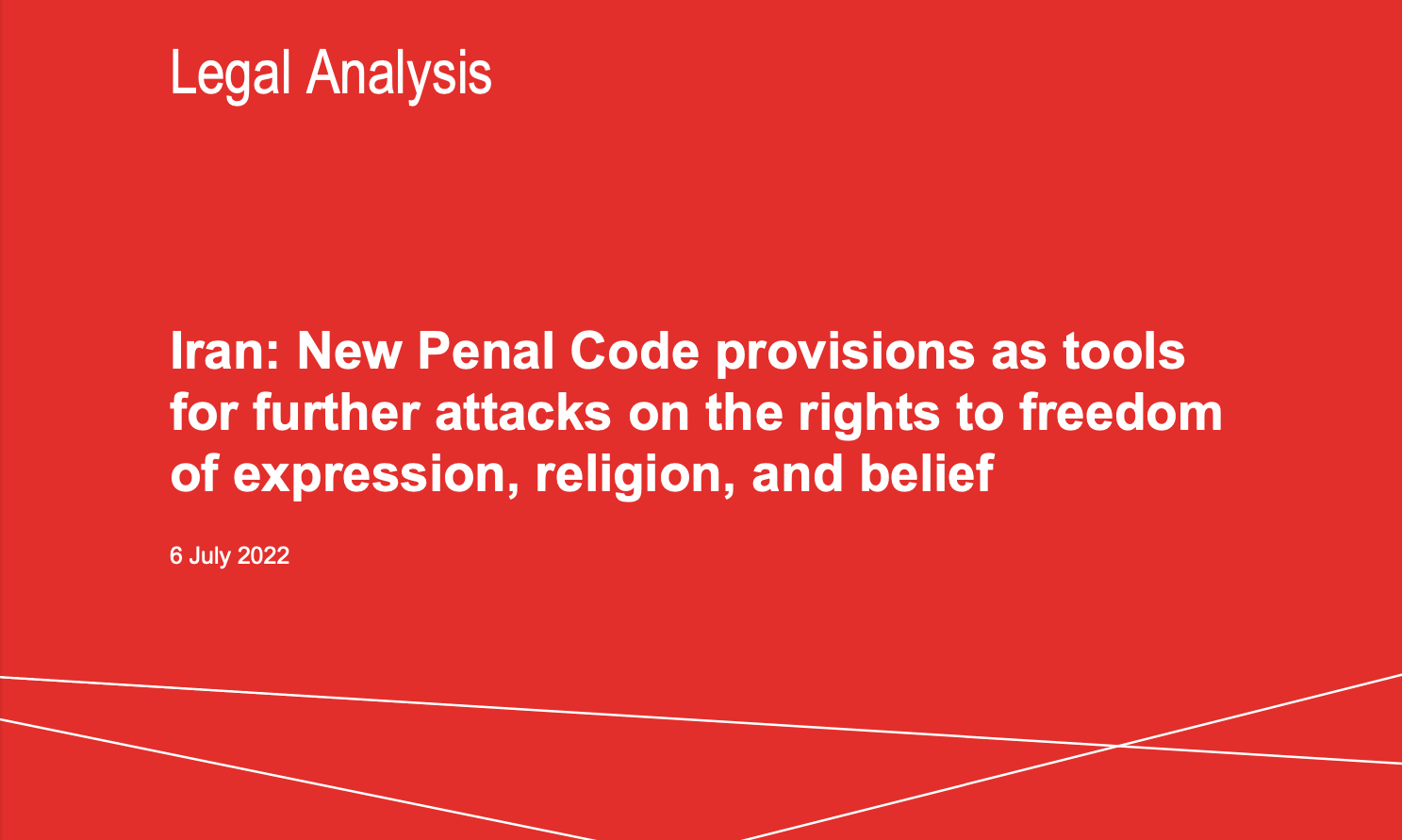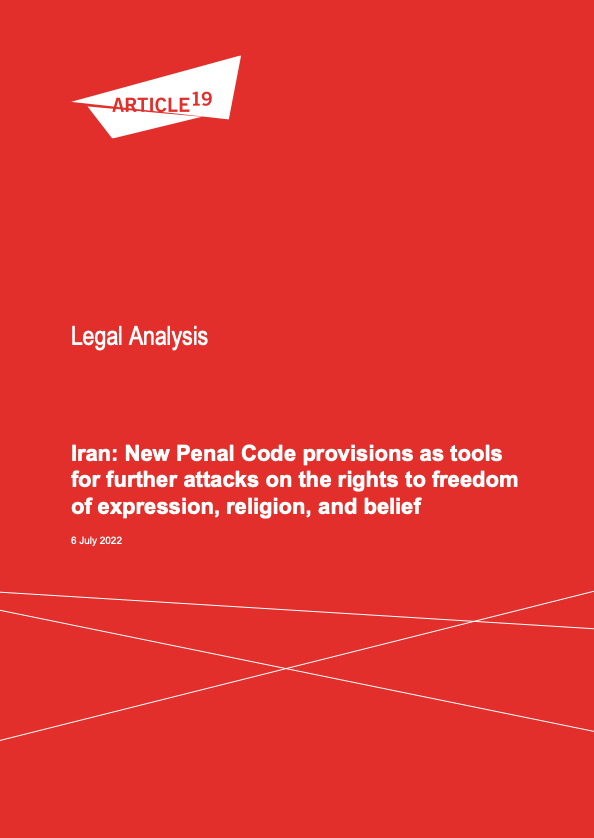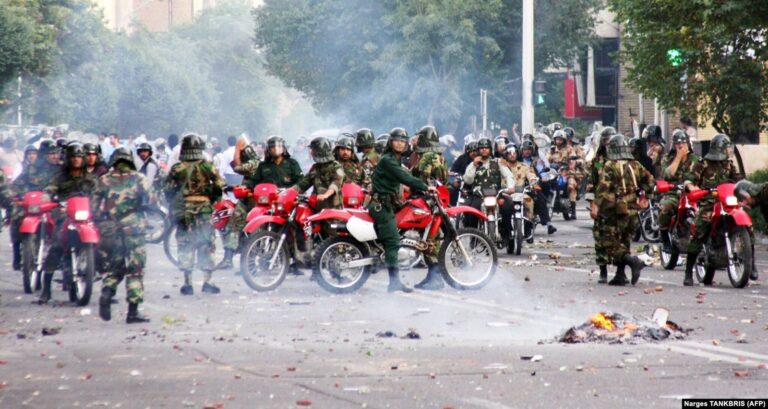Christian converts are among the groups likely to face “heightened levels of repression” as a result of last year’s controversial amendments to the penal code, according to a new report.
The report, ‘Iran: New Penal Code provisions as tools for further attacks on the rights to freedom of expression, religion, and belief’, by ARTICLE19, says the amended Articles 499 and 500, which came into force in February last year, “impose broad and vaguely worded restrictions on the right to freedom of religion and belief”, which will “disproportionately impact” religious and belief minority groups.
Three house-church members were charged under the amended Article 500 just three months after it became law. The three men were subsequently sentenced to five years in prison.
Several other Christians have since been charged and sentenced under Article 500, such as Iranian-Armenian pastor Anooshavan Avedian, who was given a 10-year sentence, and three more house-church members, who were given five-year sentences.
Article 500 “effectively criminalises adherence to, practicing, and promotion of religions and belief systems that fall outside the legally recognised religions under the Constitution, as well as dissenting opinions within the legally recognised religions”, the report says.
It notes how the Iranian authorities have “increasingly used national-security related provisions such as ‘propaganda against the system’ and ‘membership in illegal and enemy groups’ to prosecute Christian converts for exercising their right to freedom of expression and belief”.
While the wording of the laws suggests some “protective role for individuals belonging to ethnic and religious minorities”, they in fact “further tighten the already shrunken space for freedom of expression in the country”, the report says.
“The right to freedom of expression also extends to controversial, false, or even shocking material. The mere fact that an idea is disliked or thought to be incorrect cannot justify preventing a person from expressing it.
“The interpretive discretion granted to the judicial authorities is also likely to result in attacks on the rights to freedom of assembly and association, as peaceful and legitimate assemblies and associations may be deemed ‘organised criminal groups’.”
While the amended articles criminalise making “false” religious claims, ARTICLE19 says the “falsity or otherwise [of a claim] is to be decided by persons, not the State”.
Furthermore, claiming divinity or prophecy, or claiming to be in communication with the prophets, which are also criminalised in the amended articles, are “protected under the right to freedom of expression and the right to freedom of religion and belief”.
ARTICLE19 calls for the amended articles to be immediately repealed, amid a “substantial review and reform of all domestic legislation, with a view to bringing them into conformity with international law”.
The NGO also calls on Iran to amend Article 13 of the Constitution, which recognises only three minority faiths, and to repeal all legislation that prohibits and criminalises defamation of religion, blasphemy, and apostasy.
You can read the full report here.





0 Comments